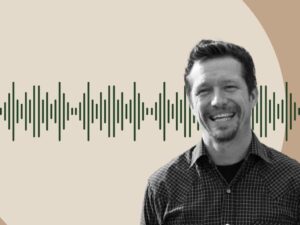December 22, 2015; The Atlantic
In her article “The Pervasive Fear of Affordable Housing in New Jersey,” Alana Semuels looks at Howell Township, New Jersey and the efforts of some in the community to resist a 72-unit affordable housing development. The issue may be anti-Semitism in this community of around 50,000 people, 88 percent of whom are Italian, Irish, German, and other European ancestries. Ms. Semuels explains, “There were the usual range of complaints: that the affordable housing would create more traffic, put additional stress on its aging infrastructure, and bring an undesirable element to town.” According to the story, there was a groundswell of concern that members of a Hasidic community in nearby Lakewood, New Jersey would be moving in.
New Jersey has been a leader among states in requiring local communities to accept a share of affordable housing cases. Their open housing policy resulted in a series of court decisions known collectively as the Mt. Laurel case. In 1975, the New Jersey Supreme Court ruled, “In the decision, the N.J. Supreme Court held that zoning ordinances which make it physically and economically impossible to provide low and moderate income housing were unconstitutional.” In her article, Ms. Semuels recounts the long administrative and court battles that (for now) ended with a March 2015 decision that rebuked Governor Christie’s actions and determined that “each town needed to submit to the courts a plan for affordable housing, committing to building a certain number of units.”
Anti-Semitism was in the news earlier this year when NPQ reviewed a story on a challenge to a Long Island community’s “German only” restrictive covenant. At the time, it seemed as if the complainant in the case, a resident homeowner who wanted to sell his house on the open market, would be seeing a compromise. Apparently not, since New York’s Attorney General Eric Schneiderman has issued subpoenas for information from the nonprofit, which owns 40 acres in the village of Yaphank, New York. According to the N.Y. Daily News, “the subpoena seeks a range of information to be provided…including decades of league meeting minutes, a demographic breakdown of the league, what dues are used for, and how people wishing to become members are screened.”
Sign up for our free newsletters
Subscribe to NPQ's newsletters to have our top stories delivered directly to your inbox.
By signing up, you agree to our privacy policy and terms of use, and to receive messages from NPQ and our partners.
Resistance to affordable housing coming to suburbs seems to be cropping up everywhere. This week, Al Jazeera America reported on another Long Island community. In the article, reporter E. Tammy Kim recounts a ten-year legal battle over efforts by Garden City, New York to restrict affordable housing development. Plaintiffs The Mutual Housing Association of New York (a nonprofit affordable housing developer) and the New York Communities for Change charged that the village of Garden City “had maintained its founder’s vision by preventing minorities from moving in.” In 2013, a lower court found for the plaintiffs, and an appeals court ruling is expected shortly.
At issue is a practice of zoning restrictions that had the effect of discrimination. Ms. Kim notes that the ruling would be the first in the nation to apply the 2015 Supreme Court decision in Texas Department of Housing and Community Affairs v. The Inclusive Communities Project, Inc., which upheld the principle of “disparate impact” in discrimination cases.
A common thread in all these stories is xenophobia in American suburbs. Often, the forces of resistance mask their motives in claims of “maintaining property values” or “cultural heritage.” As the US moves inexorably towards becoming a “majority minority” country and “white privilege” is undermined by both demographic reality and legal challenges, more overt and public resistance is to be expected.—Spencer Wells













